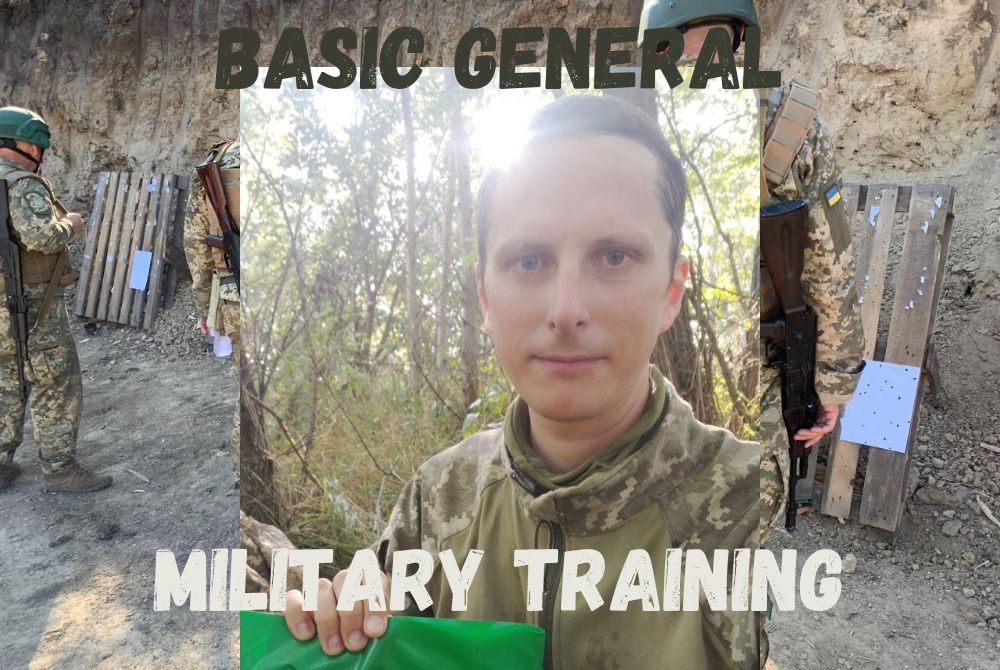Today, I want to discuss one of the most important topics at the BZVP. That is discipline. I don’t know if I’ve mentioned this before, but our unit treats us quite loyally. Of course, this has its advantages. However, there are certain situations in which this loyalty is, in my opinion, a disadvantage.
For example, when we started the second half of training and moved to live in the forest, the instructors told us about the conditions for “disinfection.” They said that we could disinfect carefully, but so that they wouldn’t see us.
Some of my comrades would sometimes quietly go to a nearby store. And when asked, one of the leaders said that he hadn’t seen or heard anything, hinting that it was okay, but quietly.
Also, punishment was not always given for being late. Usually, punishment is required for this, such as push-ups.
For example, in the first half of training, our platoon had a problem with wearing headgear.
Once, this annoyed instructor San, and he said sternly, “If I see anyone walking around without headgear, everyone in that person’s unit will have to wear helmets all day.” After that, the situation changed dramatically. That is, it improved.
However, there is another despicable phenomenon that is sometimes confused with discipline. It is a relic of the Soviet era called hazing.
After talking to quite a few different old-timers, that is, those who experienced the old Soviet army, I came to several conclusions.
1 Hazing is evil, and discipline is good. That is, it is good when punishment is imposed for violating the schedule or established important rules. This is useful and fair. But when you join the army and are bullied simply because you are younger, that is despicable and immoral nonsense.
The schedule is a really important point. All successful people say so. Therefore, teaching people to stick to the schedule is very good and useful. In this case, even harsh methods are acceptable.
But when they organize these various “games” that came to us straight from prison, such as moose, kill the tiger, and other crap, it does much more harm than good.
2 Another evil is another phenomenon born of communism and the Soviet Union. It is the habit of loafing. A friend of mine told me that it took him several years to get rid of this harmful habit. Loafing is when you are not actually doing anything useful, but you create the appearance of working.
Thank God, to date, at least in our training unit, I have not seen this abomination.
Many say that this immoral practice has disappeared because of the war. But I hope that this culture of loafing will disappear like dew in the sun from the culture of our Ukrainian army.
For example, we assign six people to a task. Of these, two are active. The other four either join the classes or do something really useful. For example, during our shift, we made a clothesline for drying clothes.
We have a parade ground where pine branches constantly fall. It is rarely swept. This is because everyone understands that even though it is a parade ground, it is a pointless task, as the branches fall again after 1-2 hours.
I have heard stories about how people in the army during the Soviet era would paint the grass green. They would sweep the parade ground with a rake and collect leaves by hand. Thank God, we don’t have anything like that now.
Take today, for example. As I understood it, there was no program for us in the afternoon. They could have treated us like stupid bastards and, for example, told us to dig and fill a hole, collect branches on the parade ground with our hands, etc. But they treated us differently.
We had to pass a reloading test. You stand with your machine gun, holding it on target. Without taking your barrel out of the line of fire or looking away, you have to reload. And you have to do this first from a standing position, then sitting, then lying down.
This is quite a difficult exercise if you’re not used to it. Many of us passed it with a 2 or 3 on the first try.
And here’s what our squad leader, Mr. Alexander (name changed for security reasons), did. He gathered everyone who had a score below 4, about a dozen people. And one by one, he called us up and told us to do the exercise again. If the score was still a 2 or 3, as it was for me at the beginning, he would say, “Stand here and practice.” Then he would move on to the next person. Then, when it was my turn again, he called me back and told me to take the test.
What’s more, when I got a 4, he told me to keep practicing so I could get a 5.
Of course, this approach took much more time. But it was definitely not a waste of time. We were all grateful to Mr. Alexander for making us excellent students in this way 🙂
Then he told us to sit down and disassemble and reassemble our weapons. Disassemble, reassemble, disassemble again, reassemble again. And I don’t consider this a waste of time either. The ability to disassemble and assemble weapons well and quickly is important. There is even a standard, I think you have to disassemble in 18 seconds. After practicing for a few hours, I learned to do it in 27 seconds. So there is still room for improvement 🙂
To sum up, discipline is very, very important. And for the sake of it, even punishment and cruel methods are allowed. But discipline in really important and useful things, such as schedules, etc. Discipline for the sake of discipline is a stupid and harmful phenomenon. There must always be a clear goal.




